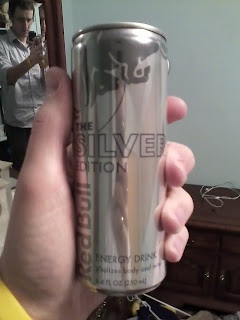

Red Bull is best enjoyed on occasion due to its added sugars. Due to its antioxidants and low calorie content, coffee may be a better choice if you consume caffeine daily. Red Bull and coffee are ubiquitous caffeinated beverages that differ significantly in nutrient content but contain similar levels of caffeine. How much caffeine in a Red Bull?Ĩ.46 fl oz (250 ml) can = 80 mg of caffeine 12 fl oz (355 ml) can = 114 mg of caffeine sponsorship of extreme sports with its famous slogan: Red Bull gives you wings… The science behind Red Bull It is one of the first energy drinks and is now distributed in over 171 countries around the world and employs 12,239 people worldwide. Red Bull is now more prevalent in a 12 fl oz can than the 8.46. Red Bull Energy Drink was established in Austria over 31 years ago. The secret to Red Bull Energy Drink’s success seems to be its first foray into bars and clubs for use in mixed drinks and its early endorsement of extreme sports with its famous slogan: Red Bull gives you wings… Calorie breakdown: 0% fat, 98% carbs, 2% protein.Ĭaffeine per ounce remains the same regardless of can size. There are 160 calories in 1 can (12 oz) of Red Bull Red Bull (12 oz). doi:10.3389/ Calories Caffeine Red Bull (8.46 fl oz) 117 80 mg Red Bull Editions (8.46 fl oz) 113 80 mg Red Bull Sugarfree (8.46 fl oz) 10 80 mg Red Bull Zero (8.46 fl oz) 0 80 mg 1 rows more.

Caffeine and exercise performance: possible directions for definitive findings. Martins GL, Guilherme JPLF, Ferreira LHB, de Souza-Junior TP, Lancha AH Jr. National Institutes of Health (NIH) News Releases Moderate daily caffeine intake during pregnancy may lead to smaller birth size. Vitamins and minerals for energy, fatigue and cognition: A narrative review of the biochemical and clinical evidence. Tardy AL, Pouteau E, Marquez D, Yilmaz C, Scholey A. Effects of changes in water intake on mood of high and low drinkers. Coffee consumption and health: umbrella review of meta-analyses of multiple health outcomes. Poole R, Kennedy OJ, Roderick P, Fallowfield JA, Hayes PC, Parkes J. Tropical Journal of Pharmaceutical Research. In vitro interaction between caffeine and some penicillin antibiotics against Staphylococcus aureus. Inhibition of caffeine metabolism by estrogen replacement therapy in postmenopausal women. Cof a 1: identification, expression and immunoreactivity of the first coffee allergen. Manavski N, Peters U, Brettschneider R, Oldenburg M, Baur X, Bittner C. Wajih Ullah M, Lakhani S, Siddiq W, Handa A, Kahlon Y, Siddiqui T. The effect of coffee on pharmacokinetic properties of drugs: a review. Effect of caffeine on bladder function in patients with overactive bladder symptoms. Lohsiriwat S, Hirunsai M, Chaiyaprasithi B. Effects of low doses of caffeine on cognitive performance, mood and thirst in low and higher caffeine consumers. No evidence of dehydration with moderate daily coffee intake: a counterbalanced cross-over study in a free-living population. National Academies Press (US) 2014.Įvans J, Richards JR, Battisti AS. Caffeine effects on the cardiovascular system. Planning Committee for a Workshop on Potential Health Hazards Associated with Consumption of Caffeine, Food and Nutrition Board, Board on Health Sciences Policy, Institute of Medicine. Short-term effects of high-dose caffeine on cardiac arrhythmias in patients with heart failure: a randomized clinical trial. Zuchinali P, Souza GC, Pimentel M, et al. The safety of ingested caffeine: a comprehensive review. Temple JL, Bernard C, Lipshultz SE, Czachor JD, Westphal JA, Mestre MA.

Neurobehavioral hazard identification and characterization for caffeine. National Institute of Health (NIH) National Institute of Mental Health. Caffeine consumption and self-assessed stress, anxiety, and depression in secondary school children.

Caffeine induces neurobehavioral effects through modulating neurotransmitters. Does caffeine trigger or treat headaches?Īlasmari F. Symptoms attributed to consumption of caffeinated beverages in adolescents. Sojar SH, Shrier LA, Ziemnik RE, Sherritt L, Spalding AL, Levy S. Mitchell DC, Knight CA, Hockenberry J, Teplansky R, Hartman TJ. Spilling the beans: how much caffeine is too much?.


 0 kommentar(er)
0 kommentar(er)
